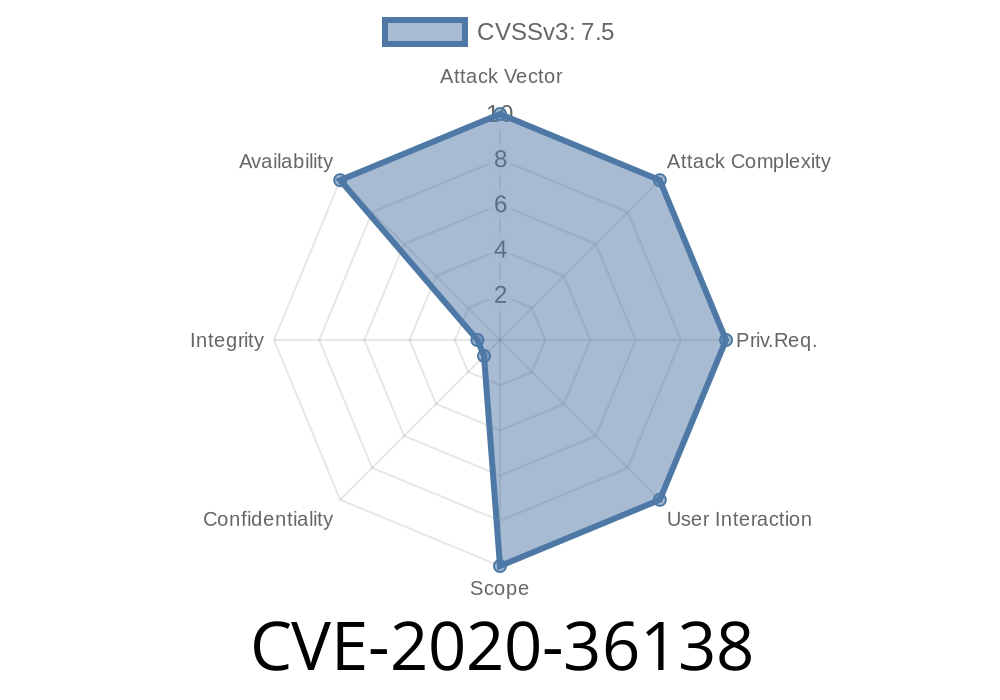A critical security vulnerability, CVE-2020-36138, was discovered in FFmpeg version 4.3. This vulnerability resides within the decode_frame function in the file libavcodec/tiff.c, which is a component of the FFmpeg library. This issue allows remote attackers to cause a Denial of Service (DoS) attack, bringing down the targeted application or system. In this article, we will delve into the details of the affected code snippet, provide links to the original references, and discuss the exploit details and potential impact.
Code Snippet
The issue lies in the decode_frame() function in the libavcodec/tiff.c file within the FFmpeg library. The problematic code snippet from the libavcodec/tiff.c file is presented below:
static int decode_frame(AVCodecContext *avctx, void *data,
int *got_frame, AVPacket *avpkt)
{
...
int ret;
...
if ((ret = ff_set_dimensions(avctx, width, height)) < )
return ret;
}
In this code snippet, the affected function ff_set_dimensions() can be exploited by a remote attacker to cause a DoS attack. A carefully crafted input to this function can lead to a possible crash of the application or system using the FFmpeg library.
The details of CVE-2020-36138 can be found at the following sources
- https://cve.mitre.org/cgi-bin/cvename.cgi?name=CVE-2020-36138
- https://nvd.nist.gov/vuln/detail/CVE-2020-36138
- https://ffmpeg.org/security/CVE-2020-36138.txt
Exploit Details
The CVE-2020-36138 vulnerability is a result of an issue with the way the decode_frame() function in libavcodec/tiff.c processes certain encoding settings within the TIFF format. A remote attacker can exploit this vulnerability by designing a malicious TIFF file containing specially-crafted encoding settings that cause a crash when processed by the FFmpeg library.
The vulnerability can be exploited in the following scenario
1. The attacker creates a malicious TIFF file containing carefully-crafted encoding settings and uploads it to a publicly accessible location.
2. The victim unknowingly attempts to process the malicious TIFF file using an application or system that utilizes the vulnerable FFmpeg library.
3. When the vulnerable decode_frame() function processes the malicious settings, a crash occurs, resulting in a DoS attack.
As a consequence, the victim's application or system will not function correctly, and a denial of service condition emerges. This vulnerability affects one of the core FFmpeg components, which is widely used in multimedia processing applications and systems, making it essential for affected users to apply patches or updates to mitigate the potential risk.
Conclusion
CVE-2020-36138 is a critical security vulnerability found in FFmpeg version 4.3, affecting the decode_frame function in the libavcodec/tiff.c file. This vulnerability can be exploited remotely, causing a denial of service (DoS) attack that could bring down the targeted system. To address this issue, affected users should apply patches or updates provided by FFmpeg or seek guidance from their respective software providers.
Timeline
Published on: 08/11/2023 14:15:00 UTC
Last modified on: 08/16/2023 15:20:00 UTC
